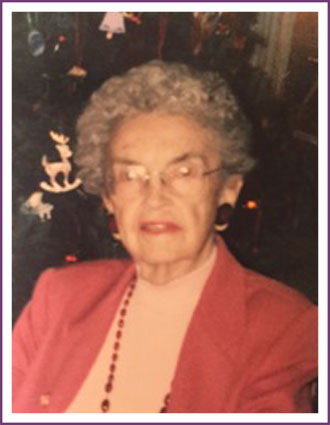ALICE Dove (Montgomery) KULL

• Human Rights
• Journalism
• Activist
Inducted: 2015
Deceased: 1991
ALICE Dove (Montgomery) KULL
Dove Kull was a far-sighted, pioneering social worker in Alaska’s early statehood years and a long-time activist for human rights. She created standards and institutions for those most in need, from children to the elderly, in her professional capacity and through civic activism. Her work and interests focused on identifying needs and developing the structures or programs to fill the need.
After an extensive, wide-ranging 37 year career in Oklahoma which ranged from teaching college-level English courses to supervising state programs for children in need, Kull moved to Alaska in 1959 at the age of 62 to begin anew a career in social work. She developed the state’s standards for adoption, foster care, and other social welfare programs for children. She established the first accredited child-care center in the state in 1961 and was responsible for creating the first nationally accredited homemaker/home health aide service. As an activist she successfully lobbied the state legislature for more than five years, to create the Older Alaskans Commission, led the effort to get funding for the first senior housing project in Juneau, and served on many boards and commissions.
Kull was recognized and honored for her outstanding contributions to children, the elderly, and villagers. Among other honors, she was listed in the first edition of “Who’s Who in American Women,”; saw the new shelter for abused women in Juneau named Dove Cottage, and received an Honorary Doctor of Humanities degree from the University of Alaska Southeast on the occasion of her 90th birthday.
She was determined, knowledgeable, detailed, and not afraid to ask for what she believed was needed. As an early worker in social work in Alaska, she achieved many “firsts.”
View Extended Bio